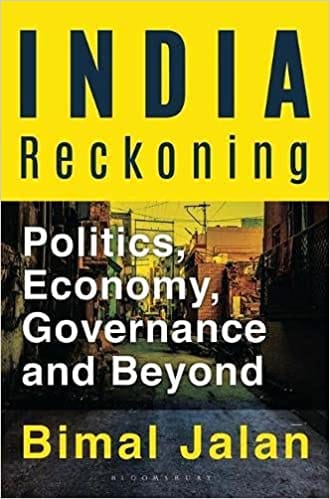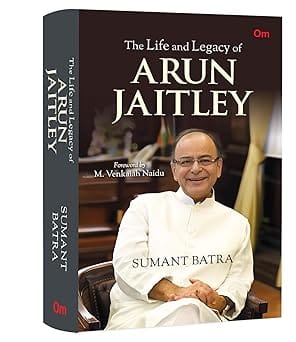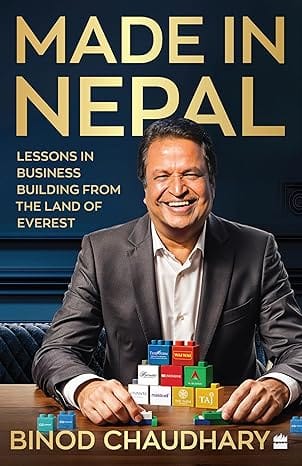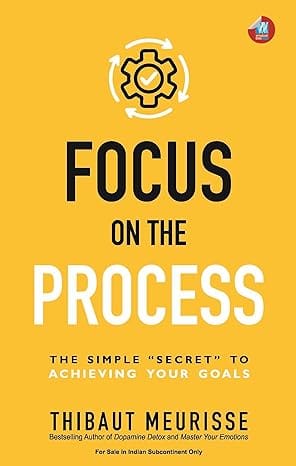- Non-ficton
- Non-ficton
- Contemporary Fiction
- Contemporary Fiction
- Children
- Children
- Comics & Graphic Novels
- Comics & Graphic Novels
- Non-Fiction
- Non-Fiction
- Fiction
- Fiction
For Jalan, there are two clear priorities for the future: to continue and benefit from the dramatic global changes in technology, trade, and investment over the previous three decades, and to get rid of the deadweight of the past in order to maximize the benefits from our economic and political strength.
Jalan offers a blueprint for the government to launch reforms to reduce corruption and administrative bottlenecks in the delivery of services to the people, such as by
· Reducing corruption in the administrative system
· Improving the role of the legislative, executive and judiciary in policymaking
· Improving governance and politics in a resurgent India and
· Strengthening the functioning of the financial and banking sectors.
In nine succinct chapters, Jalan with his characteristic insight and brilliance, discusses a range of political and economic issues which will help India realize its full potential as one of the fastest-growing, emerging economies in the world.
Book Description
About the Author
Dr. Bimal Jalan is a former Governor of the Reserve Bank. He has previously held several positions in the Government including those of Finance Secretary and Chairman of the Economic Advisory Council to Prime Minister. He was also a nominated Member of Parliament from 2003 to 2009. He was Chairman of Expenditure Management Commission during year 2014-16. He also represented India on the Boards of the IMF and the World Bank. In 2019, he was the Chairman of the Committee on "Economic Capital Framework", set up by the RBI in association with government.
Bimal Jalan has been associated with a number of academic and public institutions including the Indian Statistical Institute, Kolkata; the Institute of Economic Growth, Delhi; Centre for Development Studies, Thiruvananthapuram as Chairman; and as President of National Council of Applied Economics and Research, New Delhi.
His books on India include India's Economic Crisis: The Way Ahead (1991); The Indian Economy: Problems and Prospects (1992); India's Economic Policy: Preparing for the Twenty-first Century (1996); India's Economy in the New Millennium (2002); the Future of India: Politics, Economics and Governance (2005); India's Politics: A view from the Backbench (2007); Emerging India: Economics, Politics & Reforms (2012); Politics Trumps Economics: The Interface of Economics and Politics in Contemporary India (Edited, 2014); India: Priorities for the Future (2017); India Ahead: 2025 and Beyond (2018); Resurgent India: Politics, Economics and Governance (2019); India Then and Now: An Insider's Account (2020); and India After Liberalisation: An Overview (2021).
- Home
- Non-Fiction
- India Reckoning Rewards And Discontents Of Democracy
India Reckoning Rewards And Discontents Of Democracy
SIZE GUIDE
- ISBN: 9789354351341
- Author: Bimal Jalan
- Publisher: Bloomsbury India
- Pages: 196
- Format: Hardback
Book Description
For Jalan, there are two clear priorities for the future: to continue and benefit from the dramatic global changes in technology, trade, and investment over the previous three decades, and to get rid of the deadweight of the past in order to maximize the benefits from our economic and political strength.
Jalan offers a blueprint for the government to launch reforms to reduce corruption and administrative bottlenecks in the delivery of services to the people, such as by
· Reducing corruption in the administrative system
· Improving the role of the legislative, executive and judiciary in policymaking
· Improving governance and politics in a resurgent India and
· Strengthening the functioning of the financial and banking sectors.
In nine succinct chapters, Jalan with his characteristic insight and brilliance, discusses a range of political and economic issues which will help India realize its full potential as one of the fastest-growing, emerging economies in the world.
Book Description
About the Author
Dr. Bimal Jalan is a former Governor of the Reserve Bank. He has previously held several positions in the Government including those of Finance Secretary and Chairman of the Economic Advisory Council to Prime Minister. He was also a nominated Member of Parliament from 2003 to 2009. He was Chairman of Expenditure Management Commission during year 2014-16. He also represented India on the Boards of the IMF and the World Bank. In 2019, he was the Chairman of the Committee on "Economic Capital Framework", set up by the RBI in association with government.
Bimal Jalan has been associated with a number of academic and public institutions including the Indian Statistical Institute, Kolkata; the Institute of Economic Growth, Delhi; Centre for Development Studies, Thiruvananthapuram as Chairman; and as President of National Council of Applied Economics and Research, New Delhi.
His books on India include India's Economic Crisis: The Way Ahead (1991); The Indian Economy: Problems and Prospects (1992); India's Economic Policy: Preparing for the Twenty-first Century (1996); India's Economy in the New Millennium (2002); the Future of India: Politics, Economics and Governance (2005); India's Politics: A view from the Backbench (2007); Emerging India: Economics, Politics & Reforms (2012); Politics Trumps Economics: The Interface of Economics and Politics in Contemporary India (Edited, 2014); India: Priorities for the Future (2017); India Ahead: 2025 and Beyond (2018); Resurgent India: Politics, Economics and Governance (2019); India Then and Now: An Insider's Account (2020); and India After Liberalisation: An Overview (2021).
User reviews
NEWSLETTER
Subscribe to get Email Updates!
Thanks for subscribing.
Your response has been recorded.

India's Iconic & Independent Book Store offering a vast selection of books across a variety of genres Since 1978.
"We Believe In The Power of Books" Our mission is to make books accessible to everyone, and to cultivate a culture of reading and learning. We strive to provide a wide range of books, from classic literature, sci-fi and fantasy, to graphic novels, biographies and self-help books, so that everyone can find something to read.
Whether you’re looking for your next great read, a gift for someone special, or just browsing, Midland is here to make your book-buying experience easy and enjoyable.
We are shipping pan India and across the world.
For Bulk Order / Corporate Gifting
 +91 9818282497 |
+91 9818282497 |  [email protected]
[email protected]
Click To Know More
QUICK LINKS
ADDRESS
Shop No.20, Aurobindo Palace Market, Near Church, New Delhi














